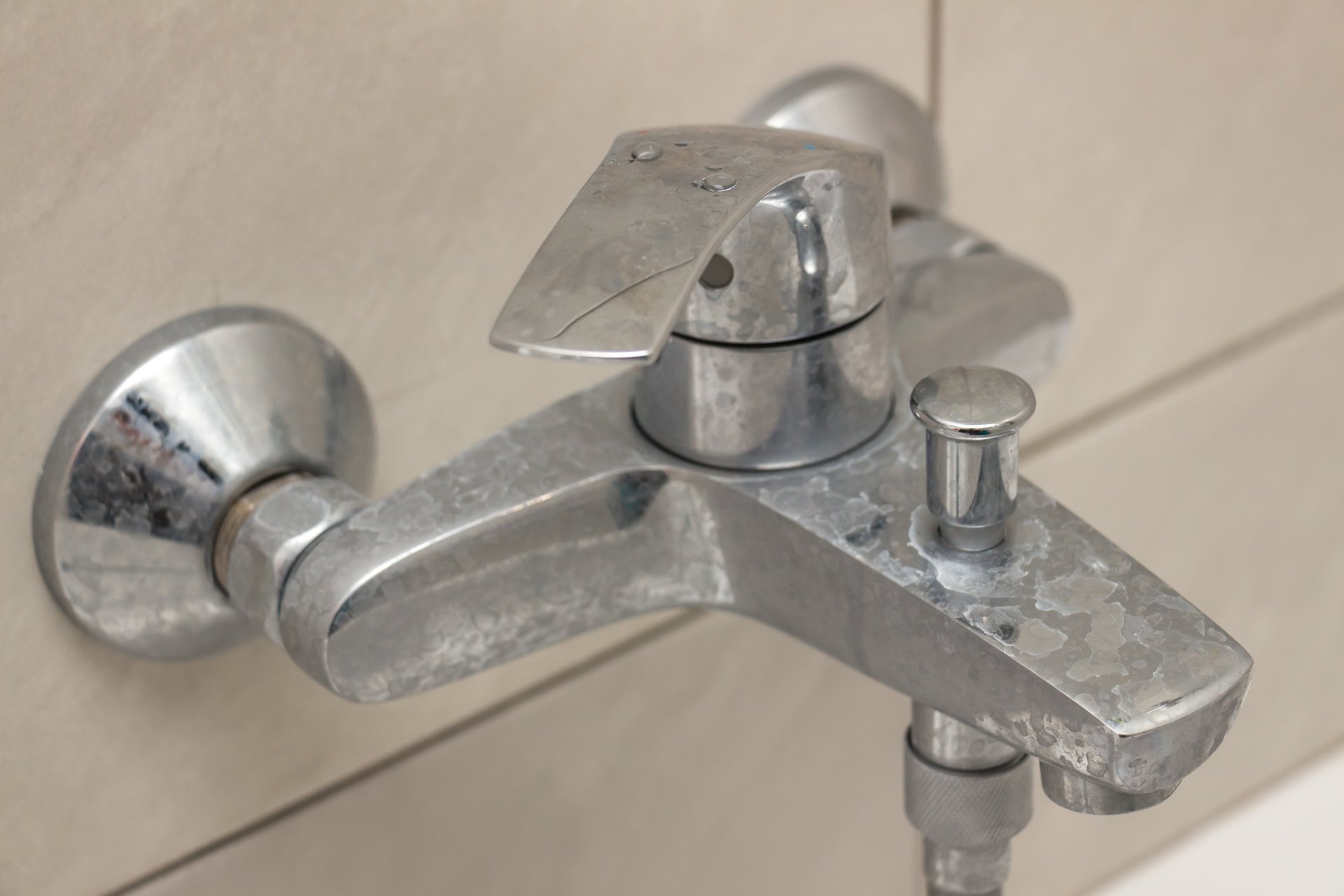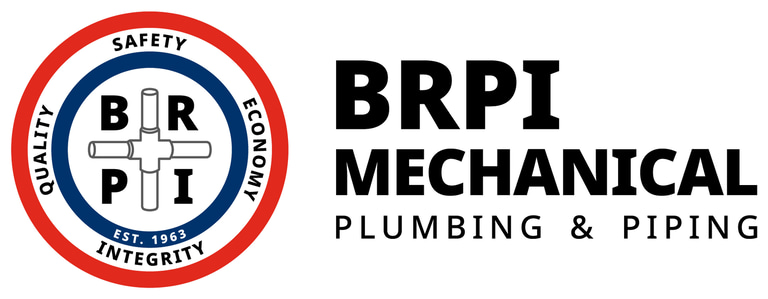Hard Water in Utah? Here’s How It’s Impacting Your Plumbing—And How to Fix It
DIY PLUMBING FIXESRESIDENTIAL PLUMBINGWASATCH FRONT PLUMBINGPREVENTIVE PLUMBING TIPS
2/19/20254 min read


If you live in Utah, you’ve probably heard about hard water. With its high mineral content, Utah’s water is among the hardest in the nation. This might not seem like a big deal at first, but hard water can have a significant impact on your plumbing system, leading to costly repairs and reduced efficiency over time. Understanding the specifics of hard water in Utah and taking steps to address it can save you money and frustration.
What Is Hard Water?
Hard water contains high levels of dissolved minerals, primarily calcium and magnesium. These minerals enter the water supply as it flows through Utah’s limestone-rich mountains and aquifers. While hard water isn’t harmful to your health, it can wreak havoc on your plumbing system.
How Hard Is Utah’s Water?
Utah is known for its exceptionally hard water. On the hardness scale, water with over 120 milligrams of dissolved minerals per liter (mg/L) is considered hard. According to the U.S. Geological Survey, many areas in Utah—including Salt Lake City, Provo, and Ogden—regularly measure water hardness levels between 180 and 250 mg/L or higher. These numbers place Utah well above the national average.
Signs of Hard Water in Your Home
If you live along the Wasatch Front or in other parts of Utah, chances are you’ve encountered some of the telltale signs of hard water, such as these:
White, Chalky Buildup: Mineral deposits, often called limescale, can form on faucets, showerheads, and other fixtures. In Utah’s harder water areas, these deposits build up quickly.
Soap Scum: Hard water interacts with soap, leaving behind a stubborn residue on dishes, shower doors, and sinks.
Reduced Water Pressure: Over time, limescale can accumulate inside pipes, narrowing the flow of water and reducing pressure.
Shortened Appliance Lifespan: Water heaters, dishwashers, and washing machines exposed to hard water are more likely to break down due to mineral buildup.
Dry Skin and Hair: Hard water can leave your skin feeling dry and your hair less manageable after showers.
The Hidden Costs of Hard Water
For Utah homeowners, the financial impact of hard water can be significant. Some of the most common hard water-related expenses include the following:
Higher Energy Bills: Limescale buildup inside water heaters forces them to work harder, increasing energy consumption. According to the U.S. Department of Energy, even a small amount of scale can increase water heater energy use by 20% or more.
Frequent Repairs: Mineral deposits can damage seals, clog aerators, and corrode pipes, leading to frequent plumbing repairs.
Appliance Replacement: Hard water can significantly reduce the lifespan of appliances, meaning you’ll need to replace them more often.
Increased Detergent Use: Soap and detergent are less effective in hard water, so you’ll use more to achieve the same results.
How to Protect Your Plumbing From Hard Water
The good news is that there are several effective ways to combat the effects of hard water in your Utah home. Here are some practical steps you can take:
1. Install a Water Softener
A water softener is the most common solution for hard water problems. These systems use ion exchange to remove calcium and magnesium from your water supply, replacing them with sodium or potassium ions. With softened water, you’ll see less limescale buildup, improved appliance efficiency, and fewer plumbing issues.
For Utah residents, investing in a high-capacity water softener designed to handle extreme hardness levels is essential. Be sure to select a system that matches the size of your household and water usage needs.
2. Use Descaling Agents
Descaling agents, such as vinegar or citric acid, can help dissolve existing limescale buildup on fixtures and appliances. For instance, soaking a showerhead in a vinegar solution overnight can restore water flow and improve its appearance. Regular descaling is a simple way to keep hard water damage at bay.
3. Flush Your Water Heater
Sediment from hard water can accumulate at the bottom of your water heater tank, reducing its efficiency and lifespan. Flushing the tank annually is especially important in Utah due to the high mineral content of the water. Many homeowners can handle this maintenance task themselves, but professional help ensures it’s done thoroughly.
4. Install Faucet Aerators and Showerhead Filters
Aerators and filters can reduce mineral buildup on your fixtures and improve water flow. These small, inexpensive additions are particularly helpful for Utah residents in areas with very high water hardness levels.
5. Monitor and Maintain Your Plumbing
Regular plumbing inspections can catch hard water issues before they escalate. A professional plumber can check for signs of limescale inside your pipes, water heater, and other fixtures, recommending solutions to prevent further damage.
Utah’s Unique Water Challenges
Beyond hard water, Utah’s semi-arid climate and limited water resources add another layer of complexity to water management. Conserving water while dealing with its hardness can feel like a balancing act. Fortunately, modern water softeners are designed to minimize waste, and using energy-efficient appliances can further reduce your environmental footprint.
Additionally, Utah’s growing population and expanding communities along the Wasatch Front mean local water supplies are under increasing pressure. Addressing hard water issues promptly not only protects your plumbing but also helps ensure your household uses water as efficiently as possible.
Local Resources for Hard Water Solutions
If you’re unsure where to start, consider reaching out to local experts who understand Utah’s unique water conditions. Many plumbing professionals in the Salt Lake Valley and surrounding areas specialize in addressing hard water problems. They can help you choose the right water softener, perform routine maintenance, and provide advice tailored to your home’s needs.
Utah residents can also take advantage of water quality reports and resources provided by their municipal water providers. These reports often include details about water hardness levels in your area, helping you make informed decisions about treatment options.
Take Control of Hard Water Today
While hard water is an unavoidable part of life in Utah, it doesn’t have to damage your plumbing or drain your wallet. By understanding its effects and taking proactive measures, you can protect your home and improve your daily life. From installing a water softener to performing regular maintenance, small changes can make a big difference when dealing with Utah’s famously hard water.
Contact
Main Office
Social
3560 S 2200 W
West Valley City, UT 84119
P.O. Box 25123
Salt Lake City, UT 84125
Monday – Friday:
7:00 am – 3:30 pm
Billing & Mailing Address
Hours
© Budd M. Rich Plumbing Company, DBA BRPI Mechanical. All rights reserved.
